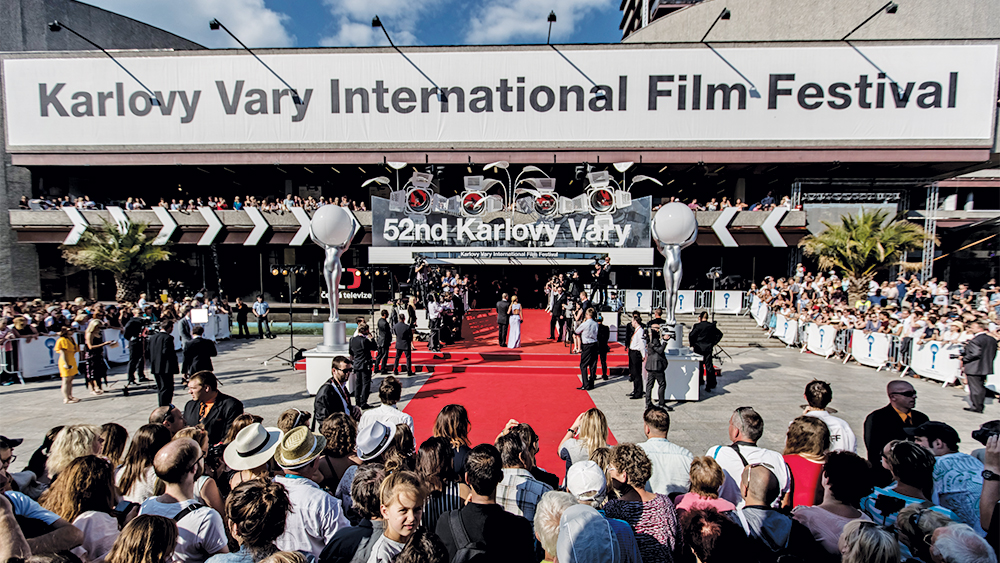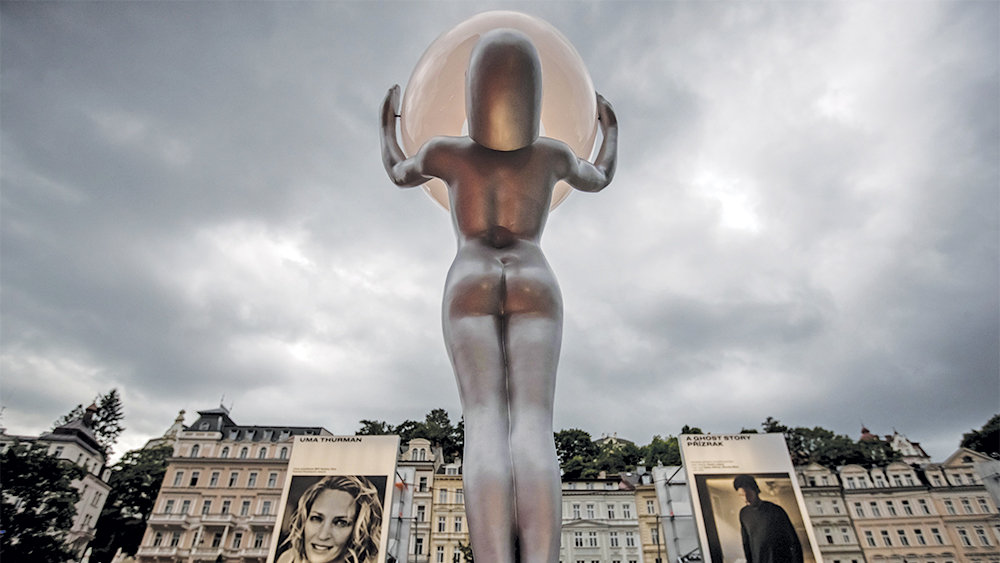Karlovy Vary Leaders Tout Fest’s Strong Femme Showing in #MeToo Era
By Will Tizard
LOS ANGELES (Variety.com) – As the world witnessed earlier this year in Cannes, film festivals — as with every other institution in the #MeToo era — are under the microscope. Observers and activists alike now carefully scrutinize the number of films made by women, the composition of juries, and any fest statement on sexual harassment policies.
How will the Karlovy Vary Intl. Film Festival, running June 29-July 7 this year, deal with these issues and others in the wake of May’s Cannes protests and changes, which included the banning of red-carpet selfies and embargoes on press screenings? Executive director Krystof Mucha and artistic director Karel Och talked with Variety about their strategies.
Regarding sexual harassment, Mucha says he does not see the need for a reporting hotline or other protections of the kind set up this year by other fests, including Cannes.
“It needs to be said that KVIFF is an event of which the more modest nature has always allowed the organizers to be in day-to-day contact with its guests, and any kind of similar deplorable behavior would be disclosed immediately,” Mucha says. “We do not feel the need to introduce protective measures.”
Addressing Time’s Up and parity for women directors and jurors, Och says, “We’d like to draw attention to the recent history of KVIFF. In 2009, in a special program called “A Female Take on Russia,” the festival introduced eight young Russian female filmmakers.”
Seven years later, he adds, the fest programmed a similar program called “A Female Take on Mexico.” “Both special sections were conceived not with the idea of gender balance, but because it was something relevant to discover on the map of the arthouse cinema.”
KVIFF has averaged two women on its Official Selection jury in its past five editions. Among its films, 11 of 63 were directed or co-directed by women in the main Crystal Globe run. The festival was relaunched in 1990 “by two strong figures,” one male and one female, Och points out: Jiri Bartoska, president, and Eva Zaoralova, artistic director.
“In a very natural way both genders have been equally represented ever since, both in the program of the festival and on the festival’s team,” Och says.
Four of the six staff members who choose the final list of films screening at KVIFF are women, he says, noting all members “were chosen for their exceptional qualities.”
| The more relaxed atmosphere at KVIFF has helped it avoid the political strife at other film festivals. MARTIN DIVISEK/EPA/REX/Shutterst |
He adds: “Only after having locked the selection of the East of the West competition this year, we realized there are seven female and five male filmmakers. With all that, we do not feel a necessity to radically change course.”
Och adds: “Minority filmmakers have always been represented at the festival. Such distinction does not exist in the way we see the world of arthouse cinema. Every single filmmaker finds in Karlovy Vary a protective home inhabited by people with a strong passion for cinema and a dedication to help the films reach the audience.”
Another hot-button topic for fests these days is whether to allow films on Netflix and other streaming platforms to compete or screen if they haven’t had a theatrical release — and may never see one.
“We are open to a discussion with anyone who holds the rights to films we would love to include into the festival’s program,” Mucha says. “Streaming platforms are supporting many filmmakers championed by festivals, which makes them our respected partners in our effort to bring the films to the audience.” He notes that KVIFF “happily screened a few Netflix films in the last few editions, such as ‘Beasts of No Nation’ and ‘My Happy Family.’”
As for the role of fests as advocates for “small” films getting cinema screen time in a world in which blockbusters increasingly dominate, Och points out the fest founded KVIFF Distribution a few years ago alongside Czech arthouse distributor Aerofilms and Czech Television, focusing on releasing “so-called festival films.”
Mucha says that the fest has no plans to ban selfies on the red carpet or to forbid film reviewers from seeing films until they’ve had their official public screenings, as Cannes did this year.
For one thing, he argues, KVIFF audiences know that anyone not in their seat five minutes before a screening may lose their spot to a fest passholder who is standing by. As for press screenings, Mucha says, “All relevant trade papers are in town and filmmakers have always been happy for their attention, which results in thoughtful reviews and hundreds of interviews.”
Tipsheet
What: Karlovy Vary Intl. Film Festival
When: June 29-July 7
Where: Karlovy Vary, Czech Republic
Web: kviff.com


